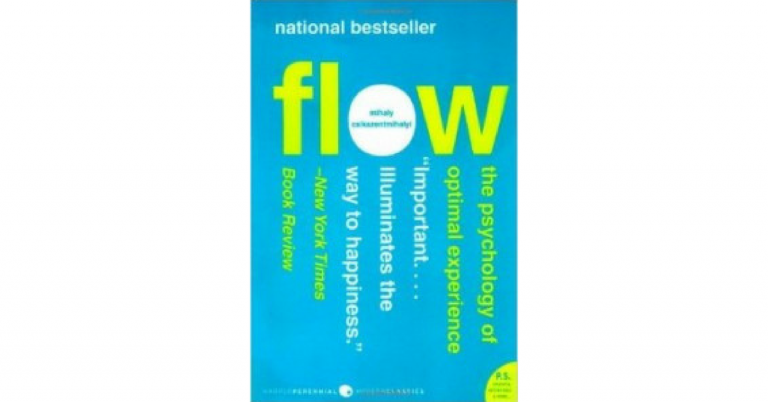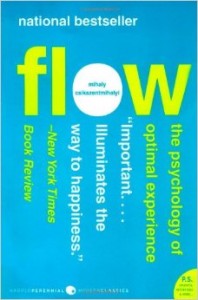
Book Review: Flow by Mihaly Csikszentmihalyi
In the positive psychology world, Flow is a classic book, and for good reason. It was published in 1990 by one of the founding fathers of positive psychology, Mihaly Csikszentmihalyi, after he had already led decades of research on “optimal experience”. Csikszentmihalyi (he coaches us to say “chick-sent-me-high” to get close to the correct pronunciation) and his colleagues were after the very peak of life; asking, when we are thriving the most, what are we doing? What many of us imagine is pure relaxation: let me lie on a beach for weeks on end, sipping beverages and nibbling grapes, and surely this would be the peak of life. This illustrates why we all need the science of happiness. While we imagine total relaxation as the peak of life, we are often quite bad at predicting our own happiness.
What Csikszentmihalyi and his colleagues found was not relaxation. As Flow says “The best moments usually occur when a person’s body or mind is stretched to its limits in a voluntary effort to accomplish something difficult and worthwhile. Optimal experience is thus something that we make happen.” Flow is “the zone” –that almost magical state of mind where you become completely absorbed in something very challenging, but possible. Because you are the edge of your ability, it takes all of your mental energy to make progress. You have no spare cycles to think “Am I doing this right?” or “Do I need to get milk on the way home?” Csikszentmihalyi writes that flow is “The state in which people are so involved in an activity that nothing else seems to matter; the experience itself is so enjoyable that people will do it even at great cost, for the sheer sake of doing it.”
So how do we get to this amazing state of mind? By focusing. Completely. Much easier said than done in this distracting world we live in. But it’s worth focusing completely on a challenge because doing so helps us to achieve flow. Csikszentmihalyi writes “The shape and content of life depend on how attention has been used…attention is our most important tool in the task of improving the quality of experience…attention shapes the self, and is in turn shaped by it.”
Part of why I enjoyed Flow so much is the repeated connection that Csikszentmihalyi makes between optimal experience and games. (As many of you know, my career has largely been leading the design and development of games, and I’m currently working on a game that teaches the science of thriving at work.) The author writes how “even routine details can be transformed into personally meaningful games that provide optimal experiences.”
But we don’t have to be playing games to achieve flow. While many of us think of work as a burden and our free time as happy time, Csikszentmihalyi (and I) believes that the right work provides ample opportunities for thriving. “In fact, working people achieve the flow experience–deep concentration, high and balanced challenges and skills, a sense of control and satisfaction–about four times as often on their jobs, proportionately, as they do when they are watching television.”
Tying games and work together, Csikszentmihalyi says work can be a better experience when it’s more like a game. “The more a job inherently resembles a game–with variety, appropriate and flexible challenges, clear goals, and immediate feedback–the more enjoyable it will be.”
Perhaps needless to say, I highly recommend Flow to anyone who wants to achieve the peak of life–at work and elsewhere.
Have you read Flow? Will you? When do you achieve flow at work? How can you make your work more like a good game, that supports you getting into flow? How can you multitask less, to achieve flow more? I’d love to read your answers. You might love to read Flow.
